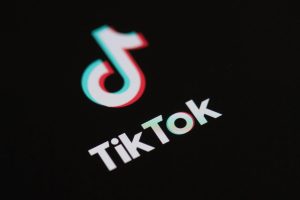
After more than 40 years of operation, DTVE is closing its doors and our website will no longer be updated daily. Thank you for all of your support.
TikTok introduces new features for users in Europe, ahead of EU’s Digital Services Act
 The youth-orientated video content platform TikTok has introduced new features including an additional reporting option for European users ahead of The European Union’s new Digital Services Act (DSA) which is due to be published on August 28.
The youth-orientated video content platform TikTok has introduced new features including an additional reporting option for European users ahead of The European Union’s new Digital Services Act (DSA) which is due to be published on August 28.
The new feature on the social media app will allow users to report content they believe is illegal, including advertising.
Users will be able to choose from a list of categories such as hate speech, harassment, and financial crimes.
Reported content will be reviewed against TikTok’s community guidelines and will be removed globally if it is found to have violated TikTok’s policies.
While, reported content that does not breach the app’s policies will be assessed by TikTok’s new dedicated team of moderators and legal specialists of whether it violates the law and we will restrict access to the content in that country only.
TikTok will inform both the creator behind the content and the user who reported it of the decision, with both offered the opportunity to appeal the decision.
In aim to meet the DSA requirements, the app will also allow users in Europe to turn off personalisation. The For You page and Live feeds will instead show popular videos from both the places where they live, rather than content recommended via personal interests.
When using non-personalised search, users will see results made up of popular content from their region and in their preferred language. Following and Friends feeds will continue to show creators users follow, but in chronological order rather than based on the viewer’s profile.
The video content platform will also restrict content to users in Europe aged 13-17, with the removal of personalised advertising based on their activities on or off TikTok.
In a statement TikTok said, “Our mission is to inspire creativity and bring joy. We know that ensuring the safety, privacy, and security of our European community is critical to achieving that goal. We will continue to not only meet our regulatory obligations, but also strive to set new standards through innovative solutions and by working with our industry partners, regulators, lawmakers, and civil society.”


